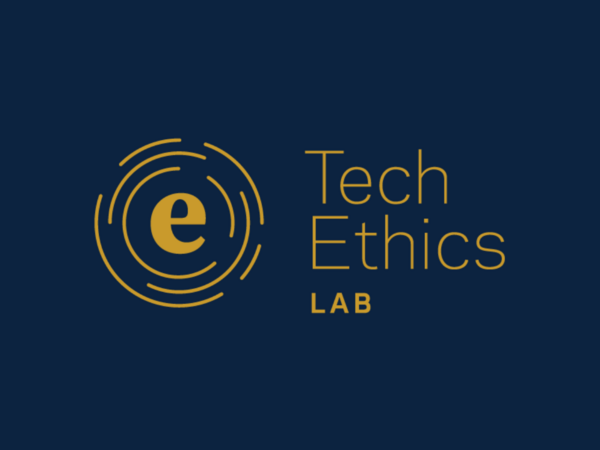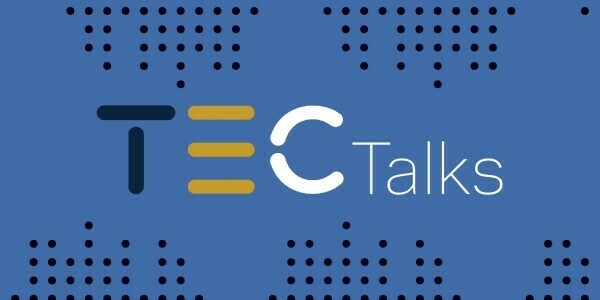
The Notre Dame-IBM Technology Ethics Lab was founded with a mission to promote broad-based, far-reaching interdisciplinary research, thought, and policy leadership in artificial intelligence and other technology ethics. It does so by engaging with relevant stakeholders to examine real-world challenges and provide practical models and applied solutions.
This mission played out in a number of ways in 2021, our first full year of activity. Starting with a foundational leadership hire and continuing through a call for research proposals that will culminate in award announcements in early 2022, the lab began to develop its identity in the tech ethics space.
Here’s a look back at these and other highlights.
Appointment of the Lab’s Founding Director
In January, Elizabeth M. Renieris, a technology and human rights fellow at the Carr Center for Human Rights Policy at the Harvard Kennedy School of Government and a practitioner fellow at Stanford University’s Digital Civil Society Lab, was appointed the lab’s founding director.
An internationally recognized expert in law and policy whose work and research focus on data governance and the human rights implications of advanced and emerging technologies, Renieris is a leading authority on digital identity, cross-border data protection and privacy laws, and technologies such as blockchain and AI.
The Launch of TEC Talks

TEC Talks, a virtual speaker series created in partnership with the Notre Dame Technology Ethics Center, got started last spring with seven sessions on the theme of “Misinformation and Disinformation.” This fall, seven more conversations examined different aspects of “Technology and Power.”
Many thanks to our friends at ThinkND for distributing these first two TEC Talks series through their website, where you can find videos of the events. Audio of the sessions is also available through the ThinkND podcast.
Series 1: Misinformation and Disinformation
Series 2: Technology and Power
Inaugural Event: “Ethics in Action” Panel
According to the UN Secretary General's Roadmap on Digital Cooperation, there are more than 160 distinct organizational, national, and international sets of AI ethics and governance principles worldwide, and even more related to technology ethics more generally.
This April panel convened a group of experts from across academia, industry, standards-setting bodies, the public sector, and civil society to share their perspectives on translating these frameworks, principles, and guidelines into action.
Renieris Testimony for the U.S. House of Representatives Financial Services Committee
On Friday, July 16, Renieris testified before the U.S. House of Representatives Financial Services Committee’s Task Force on Artificial Intelligence in a virtual hearing titled “I Am Who I Say I Am: Verifying Identity While Preserving Privacy in the Digital Age.”
The hearing concerned the future of digital identity frameworks in the United States; the development of secure, reliable, and interoperable digital identity solutions that minimize fraud and identity theft while respecting individual privacy and security; and the proposed Improving Digital Identity Act of 2020, a bipartisan bill seeking to set government-wide policy to modernize U.S. digital identity infrastructure.
Call for Proposals
This fall, the lab released an inaugural call for proposals with the aim of funding practical and applied interdisciplinary projects focused on six core themes:
- Scale: Projects that address the limits of networked technologies; the risks of large data models; frameworks for mitigating systemic risks; or methods for scaling safely and responsibly
- Automation: Projects that address how we preserve autonomy in the face of automation; the risks of automated processing/algorithmic decision-making; or how to revive and apply the right to the freedom of thought to digital technologies
- Identification: Projects that address how to design ethical digital ID schemes; the ethics of reputational or scoring systems; ethical frameworks for the use of biometrics; or the ethics of immunity certificates/passports
- Prediction: Projects that address the ethical limits of prediction; ethical frameworks for the use of predictive technologies; policy guidance for accountability and recourse with respect to predictions and predictive technologies
- Persuasion: Projects that examine when it’s acceptable or unacceptable to nudge or persuade; the line between persuasion and manipulation; how to design ethical frameworks for neurotechnologies; or the role of design and defaults to avoid dark patterns and the like
- Adoption: Projects that address how to design ethical frameworks for procurement; establish guardrails for public-private collaborations; develop governance models and oversight
The call for proposals generated more than 100 submissions from every continent but Antarctica, with North America (46), Africa (28), and Europe (19) leading the way. Awards will be announced in late January 2022.
